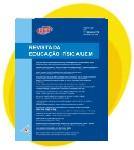Estimation of body mass index from self-reported measures: what is the validity?
Keywords:
Anthropometry. Validation studies. Nutritional status.
Abstract
The aim of this study was to evaluate the use of self-reported measures for calculating body mass index (BMI) and nutritional status. A cross-sectional quantitative study was conducted on 1,000 students. Body weight and height were measured by a trained evaluator and were obtained by self-report of the participants. There was a trend towards underestimation of body weight by 0.3 kg and overestimation of height by 1.0 cm, which resulted in lower self-reported BMI compared to measured BMI (p <0.001; r = 0.34). Analysis of agreement with measured BMI showed very high reliability of self-reported BMI. The evaluation of nutritional status based on measured BMI resulted in an increase in the percentage of eutrophic individuals (+2.3%) and a decrease in obese individuals (-3.2%). This decrease was greater among men (-6.1%). A change in nutritional status classification occurred in 14.5% of the participants when evaluated by self-reported BMI. In conclusion, there is good agreement between self-reported and measured BMI, but the results suggest caution in the use of self-reported BMI alone or as a continuous variable. Categorized information seems to be more appropriate for the classification of nutritional status.Downloads
Download data is not yet available.
Metrics
Metrics Loading ...
Published
2017-11-20
How to Cite
1.
Lima LRM de, Freitas RP de A, Silva LRD, Medeiros ACQ de. Estimation of body mass index from self-reported measures: what is the validity?. JPhysEduc (Maringá) [Internet]. 2017Nov.20 [cited 2026Jan.12];29(1):e-2907. Available from: https://periodicos.uem.br/ojs/index.php/RevEducFis/article/view/31217
Issue
Section
Physical activity and health
• Authors retain the copyright and full publishing rights without restrictions.

This work is licensed under a Creative Commons Attribution 4.0 International License.













_1502.jpg)











